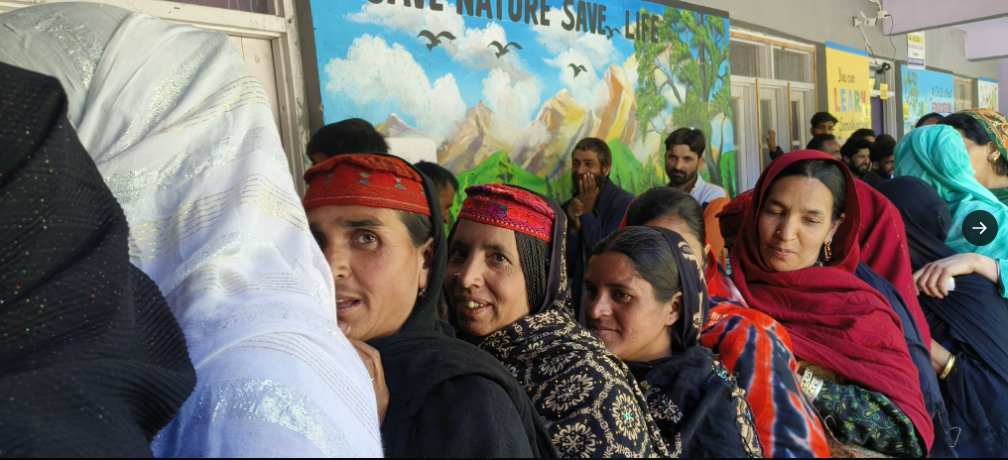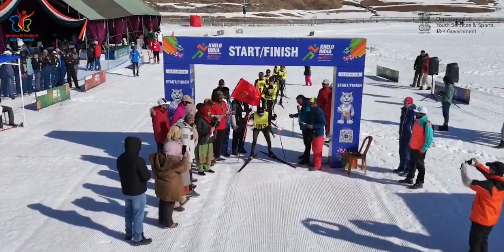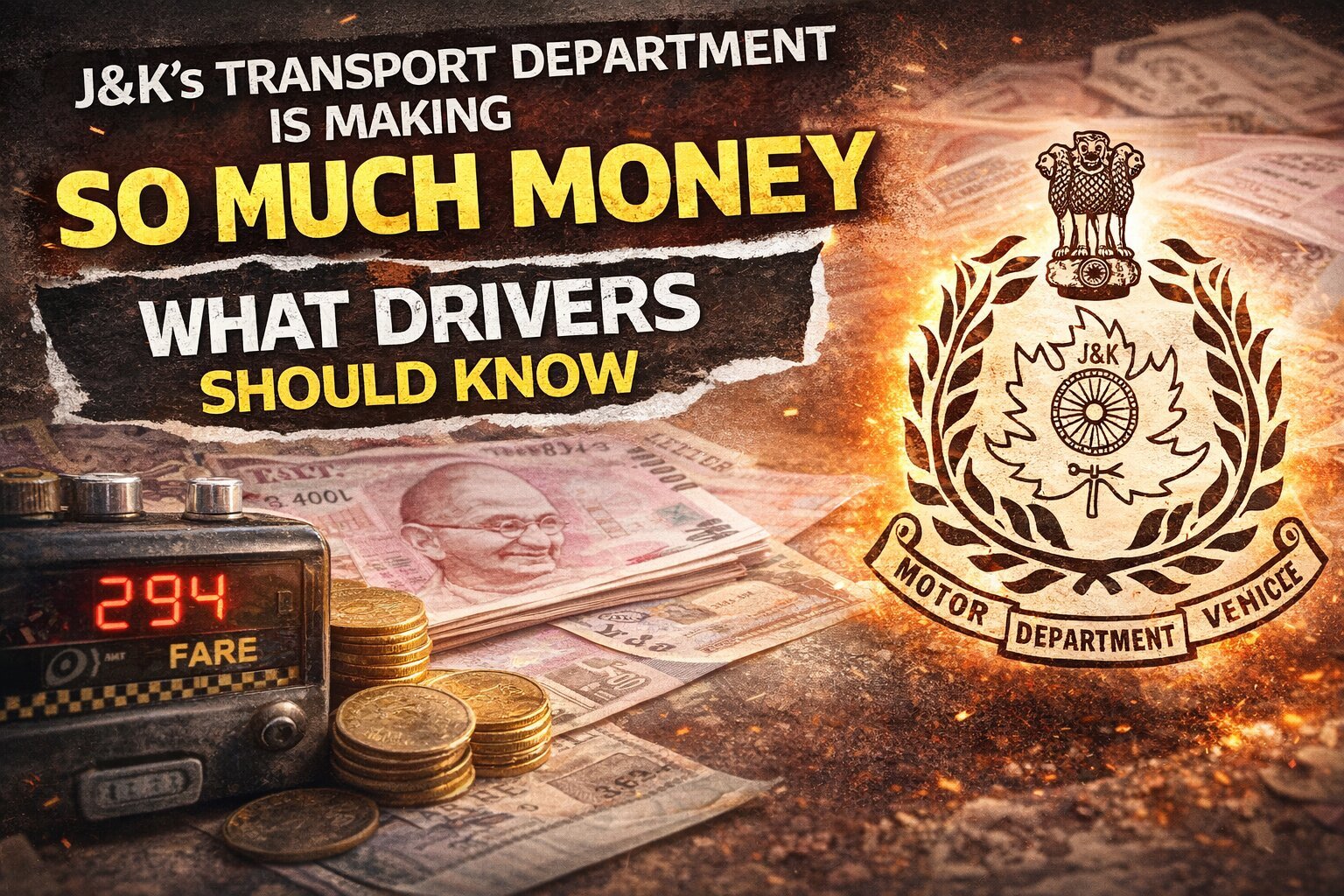JK Election Phase 1 of Assembly Elections 2024 concluded peacefully on September 18, 2024, with voters exercising their franchise across 24 constituencies in in 7 districts of Jammu and Kashmir.
Of the 90 seats, 24 voted in the first phase — 16 in the Kashmir Valley and eight in the Jammu region. Over 2.3 million voters were eligible to cast the ballot to determine the fate of 219 candidates, including 90 Independents.
Voter Turnout JK Election Phase 1
According to the Election Commission, the overall voter turnout was approximately 59%, with the highest voting was recorded in Kistawar at 77.23 per cent, followed by the Doda West seat, with 69.33 voter turnout, according to the poll panel.
Kistwar registered the highest voter turnout, 77.23 percent, followed by Doda (69.33), Ramban (67.71), Kulgam (61.57), Anantnag (54.17), Shopian (53.64), and Pulwama (46.03). The polling began at 7 am and concluded at 6 pm.
Key Constituencies in JK Election Phase 1
Some key constituencies that went to polls in the first phase included Doda, Anantnag, Anantnag (West) , Banihal, Bhadarwah, Doda (West), Inderwal, Shopian, Pulwama and Kishtwar.
JK Election Phase 1 : Security Arrangements
Elaborate security arrangements were made to ensure smooth voting. Over 30,000 security personnel were deployed across the 24 constituencies. Additionally, drones and helicopters were used for aerial surveillance.
Polling was held across 3,276 polling stations established in 24 ACs spanning 7 districts namely, Pulwama, Shopian, Kulgam, Kishtwar, Anantnag, Ramban and Doda.
Security forces fanned out to ensure that there was no trouble. The day was largely without incident except for reports of clashes between political workers in some areas of Bijbehara and D H Pora.
Electoral Promises in JK Election
Major political parties, including the National Conference, Peoples Democratic Party, BJP, and Congress, have promised development, employment, and empowerment of the youth.
Statehood is a major issue in the elections and its restoration has been promised by the BJP – including by PM Narendra Modi and Home Minister Amit Shah – as well as the Congress and the National Conference, which are contesting the polls in an alliance.

Notable Candidates in JK Election Phase 1
In the first phase, 219 candidates are in the electoral fray, 9 of whom are women candidates.
Another major player is Mehbooba Mufti’s Peoples Democratic Party and other parties include Abdul Ghani Lone’s People’s Conference, Ghulam Nabi Azad’s Democratic Progressive Azad Party and Altaf Bukhari’s Apni Party. An interesting development is the entry in the elections of the banned Jamaat-e-Islami, which is backing some candidates.
Pulwama is one of the constituencies where the contest is being keenly watched. PDP youth leader Waheed ur Rehman Para, who is contesting his first election is up against former party veteran Mohammad Khalil Band, who is now with the National Conference. Mr Para, 36, had campaigned for Mr Band as a youth leader from the PDP in the 2008 and 2014 elections and is on bail in a case under the stringent anti-terror act, UAPA. Mr Band, 73, is a three-time MLA.
The Srigufwara-Bijbehara constituency in South Kashmir will see PDP Chief Mehbooba Mufti’s daughter, Iltija Mufti, contesting her first Assembly election after the former chief minister refused to enter the electoral fray. Ms Mufti, 37, is up against National Conference’s Bashir Ahmad Shah and the BJP’s Jammu and Kashmir Vice President Sofi Yousuf.
In Kulgam, the CPM’s Mohammed Yousuf Tarigami is looking to defend a seat he has won since 1996, but is facing a very different challenge in the form of a candidate backed by the Jamaat. Speaking to NDTV, Mr Tarigami, who is the Congress-National Conference consensus candidate, had said this is not the first time the Jamaat has made a U-turn in terms of entering electoral politics and insisted that there is no “green wave” in the red citadel.
However, all eyes will be on Srigufwara-Bijbehara and Pulwama assembly segments where PDP’s Iltija Mufti and Waheed Para are contesting polls, respectively.
Read also: JK Assembly Elections: Candidates Income declaration, Assets. All you need to know
Election Commission’s Efforts
The Election Commission has taken several measures to ensure fair and transparent polls. Webcasting and live monitoring were done in over 90% of polling stations.

Home-voting facility, introduced for the first time in Assembly elections in J&K saw democracy being taken to the doorsteps of those who are bound by physical limitations. Many voters aged above 85 years and PwDs with 40% benchmark disability opted to vote from the comfort of their homes, while those who visited polling stations were greeted with warmth and all assured minimum facilities.
Voting was halted briefly at a polling station in Bagwan Mohalla, Kishtwar following a protest here over the identification of voters, however, voting was resumed. Responding to the incident, Kishtwar DM Rajesh Kumar Shavan said that it was confusion and situation is normal.
Next Phase
The next phases are on September 25 and October 1. The votes will be counted on October 8.
Reaction from Political Parties
Reacting to the peaceful conduct of polls, National Conference leader Omar Abdullah urges people to vote wisely after Engineer Rashid says “his doors are not shut for anyone”
National Conference vice-president Omar Abdullah Wednesday asked people to vote wisely after Engineer Rashid stated he remains open to supporting any party, including the BJP, for government formation.
In an interview, Engineer Rashid, leader of the Awami Ittehad Party (AIP), said that he is open to an alliance with the BJP if needed. “We will see that time what the situation is,” he said, as quoted by news agency PTI.
In response, Omar Abdullah challenged Rashid to clarify what he had said. “He has openly said his doors are open for the BJP if it needs MLAs after October 8,” he said.
‘PDP will emerge as the number one party in South Kashmir,’ says Mehbooba Mufti
The first phase of J&K Assembly Elections 2024 has set the tone for the remaining phases. With a significant voter turnout, the people of Jammu and Kashmir have reaffirmed their faith in democracy.
This is the first Assembly elections in Jammu and Kashmir since 2014 and its first since the removal of Article 370, which gave the erstwhile state special status, in 2019. This is also the first time that Jammu and Kashmir will see an Assembly election as a Union Territory. When Article 370 was abrogated, the state was also divided into the Union Territories of Jammu and Kashmir and Ladakh.
Sources:JK CEO
















